As we speak, human beings and the livestock we rear for meals make up 96 per cent of the mass of all of the mammals on the planet. Furthermore, 70 per cent of all of the birds now alive are poultry — principally the chickens we eat. Extinction charges are additionally considered 100 to 1,000 instances greater than their background price over the previous tens of thousands and thousands of years. All this can be a small a part of our total impression on the planet’s biosphere, the sum of all its ecosystems.
Humanity has turn into a cuckoo within the planetary nest. Our dramatic success in growing our wealth and numbers has created a brand new age, typically referred to as the “Anthropocene”. This label could also be an exaggeration. However that our actions are reshaping life on earth is not any exaggeration. The query then is that this: if we want to reverse these threats, what should we do and quit?
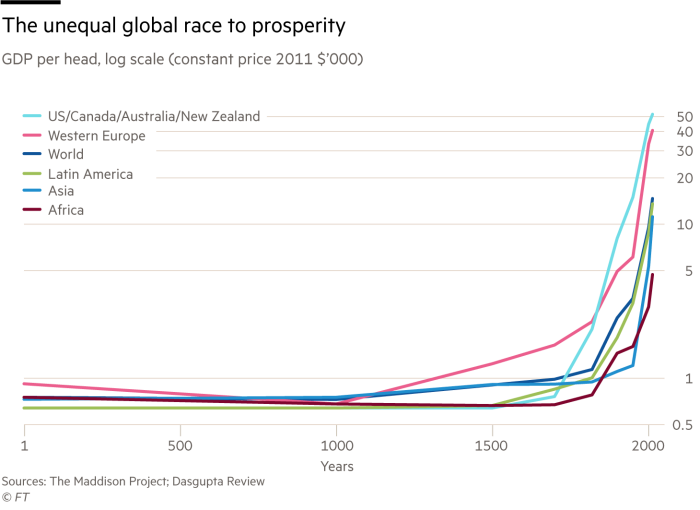
The outstanding details famous above come from the foreword by David Attenborough to a definitive study of the economics of biodiversity, by Sir Partha Dasgupta of Cambridge college. It’s not doable, Dasgupta argues, to exclude nature from our financial evaluation. As his evaluate states soberly: “At their core, the issues we face at this time aren’t any totally different from these our ancestors confronted: the best way to discover a steadiness between what we take from the biosphere and what we depart behind for our descendants. However whereas our distant ancestors have been incapable of affecting the earth system as a complete, we’re not solely ready to do this, we’re doing it.”
In an interesting latest lecture on “Techno-optimism, behaviour change and planetary boundaries”, the British economist Lord Adair Turner tackles head on the query of how finest to handle the challenges. He notes two different approaches. One, which I’d name “Onward and Upward”, rests on religion that human ingenuity will discover a method to clear up issues created by human ingenuity. The opposite, which I name “Repent, For the Finish is Nigh” rests on the conviction that we should abandon all our grasping methods if we’re to outlive.
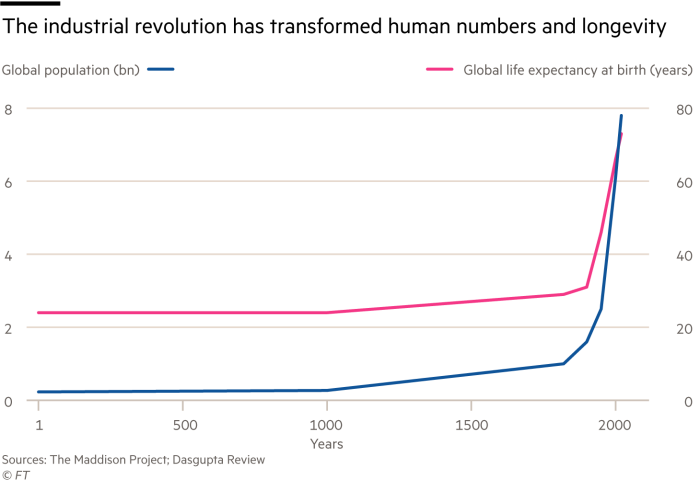
Helpfully, Turner transforms these contradictory attitudes into empirical questions: what’s going to work, and over what time horizon? In answering them, he distinguishes bodily from organic techniques. The previous are those that present us with work, warmth and cooling. The large problem right here is our dependence on fossilised daylight, within the type of fossil fuels and their emissions of greenhouse gases. The latter provide us with the meals we eat, in addition to some textiles. The solar, water, minerals and the ambiance are, evidently, important to life. However the transformation of those inputs into life itself includes biochemistry — the manufacturing of advanced molecules by life itself.
Making Mission Possible: Delivering a Net-Zero Economy, printed by the Vitality Transitions Fee in September 2020, lays out, Turner notes, a believable passage to internet zero emissions by 2050. At its core is a shift in the direction of reliance on incident daylight and wind, within the type of solar- and wind-generated electrical energy. This shall be mixed with batteries, hydrogen and other forms of storage, in addition to a job for bioenergy and carbon seize within the medium run. Due to the collapse in value of renewable power, this transition is now each possible and low-cost. A couple of sectors, akin to iron and metal, shall be costly to remodel. However they aren’t massive sufficient to alter the massive image.
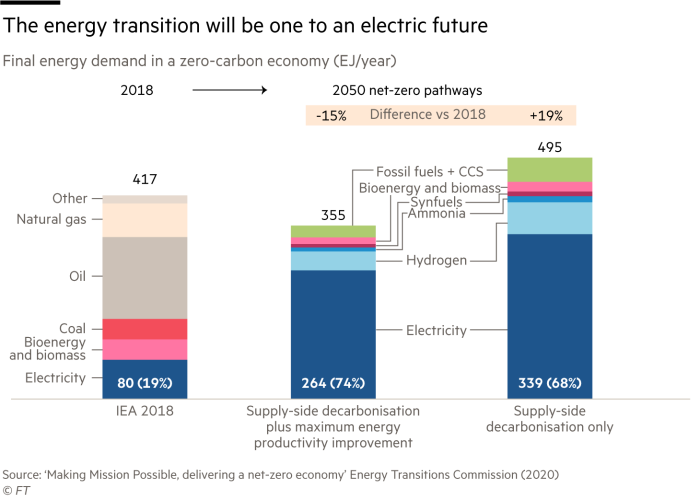
In short, the physics of the power transition is easy. The issue is scarcity of time. We have to make massive progress in the direction of decrease emissions over the following decade. However we can not renew our complete infrastructure in so temporary a interval. So, within the brief run, many might want to constrain their consumption. However, over the long term, the techno-optimists shall be proved proper on the power transition.
Sadly, they aren’t (but) proper concerning the meals transition. The issue will not be the power we’d like for meals, which is simply 6 per cent of whole human non-food power use. The issue is that photosynthesis and the conversion of vegetation into meat by animals are power inefficient. So, biochemistry explains why humanity has needed to take over a lot of the planet. It takes enormous areas of the photo voltaic receptors referred to as vegetation to provide sufficient meals and agriculture additionally emits massive quantities of greenhouse gases.
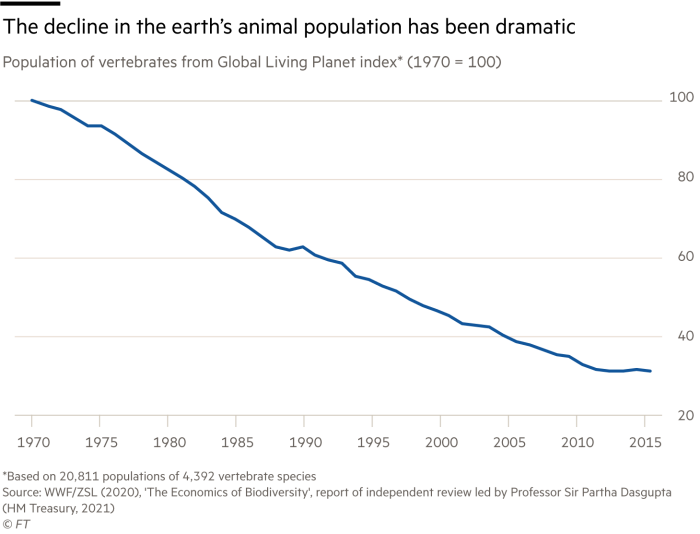
Turner suggests a mix of three options to this enormous downside. The primary is massive enhancements in agricultural apply. We’re, for instance, ruining land and changing it with new land taken from different makes use of. Genetic engineering will certainly play a component right here. The second is modifications in food plan, particularly away from meat and dairy. The third is radical modifications in know-how, in the end turning the manufacturing of meals into simply one other industrial course of.
We’re, in sum, at a historic juncture. It has fallen to our technology to take accountability for the planet as a complete. There is no such thing as a query that a lot of the response have to be well-directed technological change, since no conceivable political course of, least of all a democratic one, will meet these challenges by reversing two centuries of elevated power use. Humanity won’t return to its premodern existence, the place life was nasty, brutish and brief for nearly all. However, given the place we at the moment are, by way of our impression on the biosphere, we may also have to alter our behaviour, a minimum of over the brief to medium run.
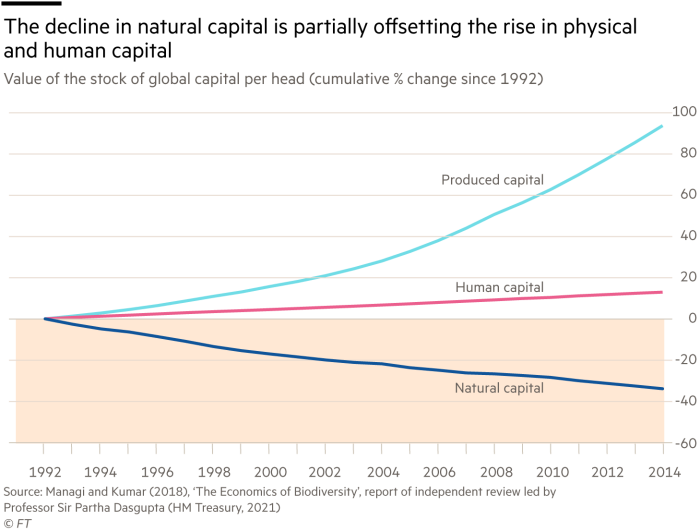
Whether or not it will likely be doable to agree and implement so radical a course correction is, to place it mildly, open to query. Thus far, we have now proven subsequent to no capacity to resolve this enormous problem to collective motion. However the want is apparent. We should not go on behaving as we have now been. Many people might want to change our behaviour and the richest amongst us must change most.






